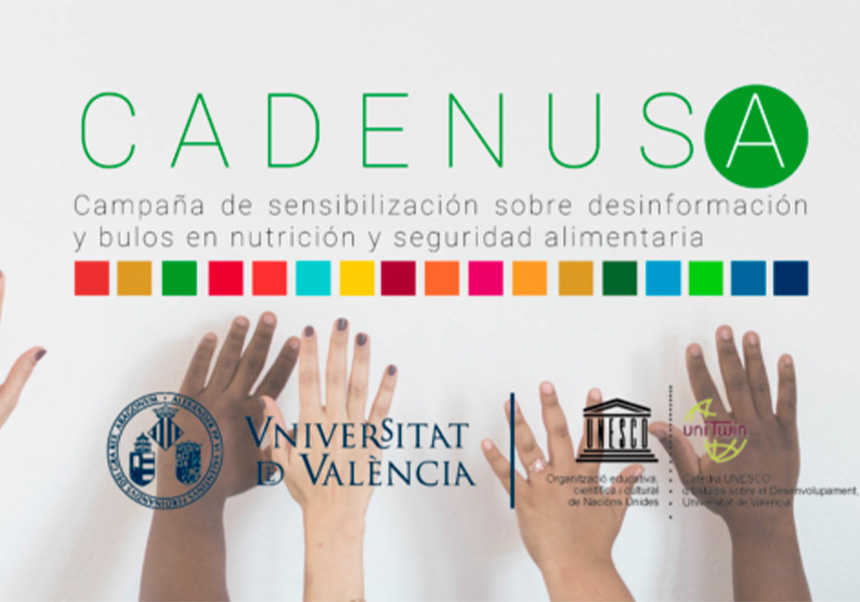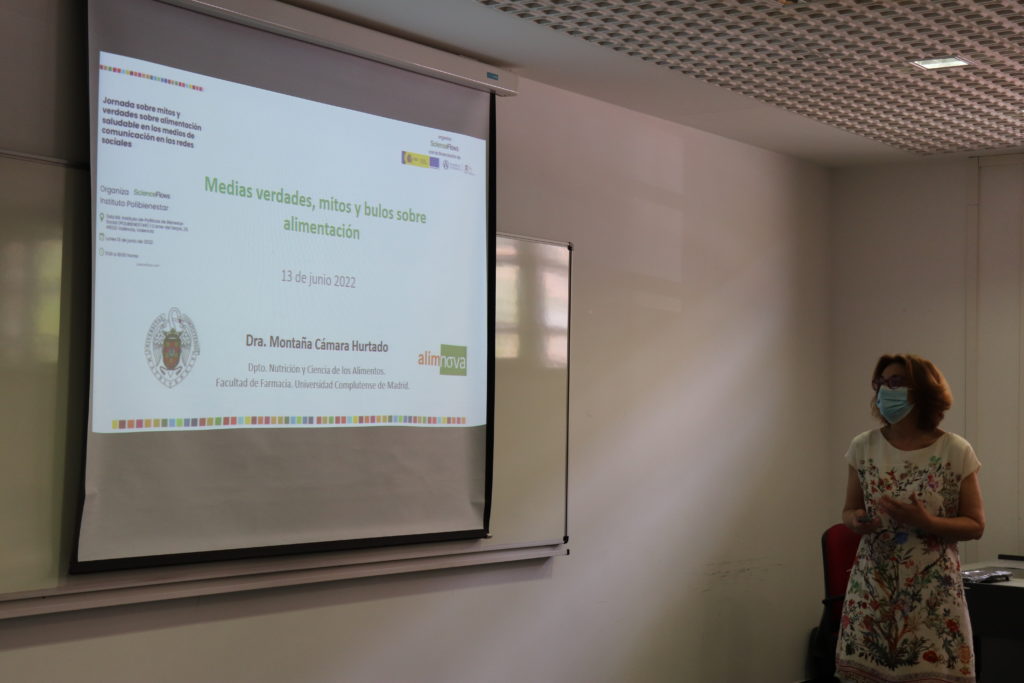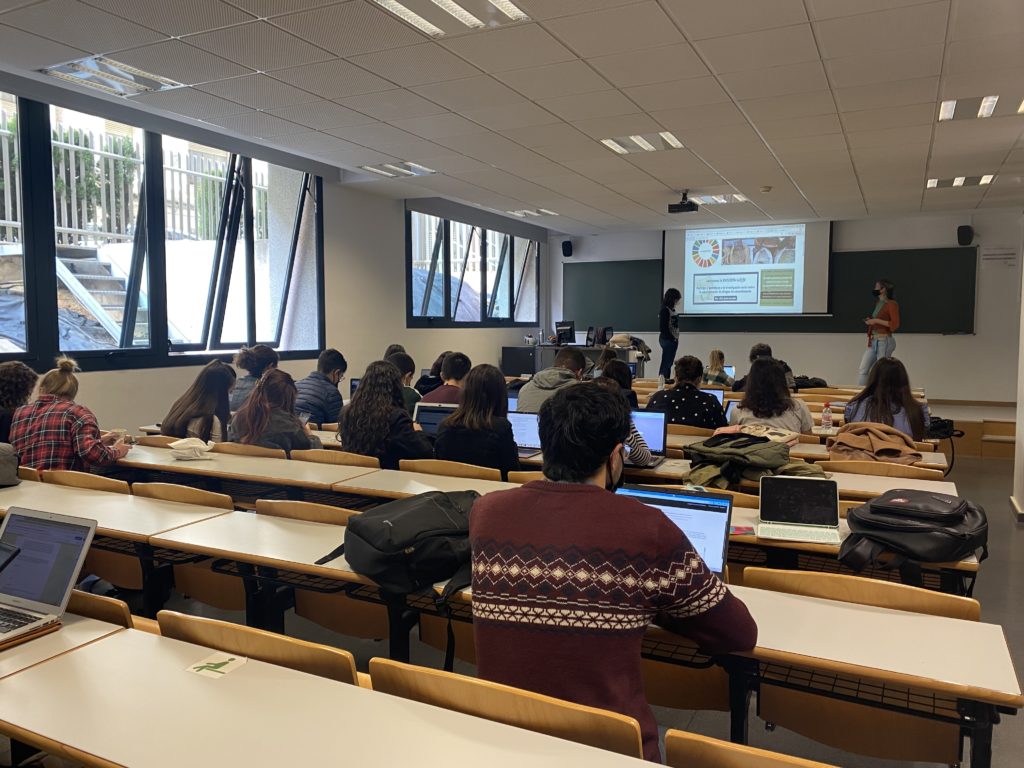
The CADENUSA project (awareness campaign on nutrition and food safety misinformation and hoaxes) ends on 31 July 2022 with the following results:
- The creation of the ‘Manual for good practices in communication and promotion of healthy eating’. This manual is audio accessible.
- Seven interviews as informative videos done by experts from different fields of scientific communication, dieting, nutrition and food safety:
- Dr. María de la Montaña Cámara Hurtado, full-time university professor of Pharmacy at the Complutense University of Madrid.
- Dr. Patricia Morales Gómez, Associate Professor of Pharmacy at the Complutense University of Madrid.
- Dr. José Miguel Mulet, full-time university professor of Biotechnology at the Universitat Politècnica de Valencia.
- Dr. Jose Ramón Mauleón, doctor in sociology and professor at the University of the Basque Country.
- Dr. Marisa Vázquez de Agredos Pascual, coordinator of the Intangible Culture Observatory and Global Village of the Universitat de València.
- Dr. Raúl Fortes, professor at the Universitat de València, specialised in East Asia. Has coordinated the series Intangible Culture and Global Village.
- Dr. Carolina Moreno Castro, full-time university professor in Journalism at the Universitat de València.
Access to the manual Access to the interviews
Simultaneous activities
Other than the questionnaires and the social media campaign, throughout the CADENUSA project, multiple complementary activities were carried out, such as the session about ‘Myths and truths on the media about eating healthy’. During the different conferences, presented by the Principal Investigator of the project, full-time university professor in Journalism Carolina Moreno Castro, we have had the pleasure of counting with Dr. María de la Montaña Cámara Hurtado, full-time university professor of Pharmacy at the Complutense University of Madrid, Dr. Patricia Morales Gómez, Associate Professor of Pharmacy at the Complutense University of Madrid and Dr. Vanessa Roger Monzó, professor at the ESIC Business&Marketing School. Additionally, the researchers in training and members of the project Ana Serra and Paula von Polheim showed CADENUSA main objectives and the results of the questionnaires.
The session revolved around different blocks:
• Half truths, myths and hoaxes about eating.
• Using social media to promote a healthy diet.
• Diets during lock down: an analysis on the speech from the media about nutrition during Covid-19.

Dr. María de la Montaña Cámara Hurtado, full-time university professor of Pharmacy at the Complutense University of Madrid.
Another activity that took place was a workshop with the fourth year Journalism students, specifically those who have taken the subject ‘Scientific Journalism’. Together with the professor of the subject, Dr. Susanna Ligero, and the researchers in training from CADENUSA, Ana Serra and Paula von Polheim, the students have collaborated in the CADENUSA questionnaires and have contributed their perspectives and ways of learning about healthy eating. Similarly, they were given some CADENUSA coasters in which the QR with the link to the questionnaires was printed.

CADENUSA workshop aimed at the fourth year Journalism students taking the subject ‘Scientific Journalism’.
Funding
The research project ESMODA-ECO-RTI2018-099663-B-I00, funded by MCIN/ AEI /10.13039/501100011033/ and ERDF: A way of making Europe and the UV Office of the Vice-Principal for International Relations and Cooperation, through the Chair UNESCO scholarships of the academic year 2021-2022.
















